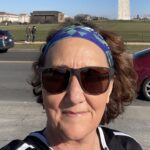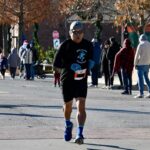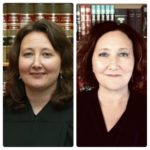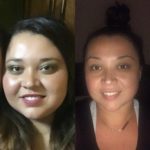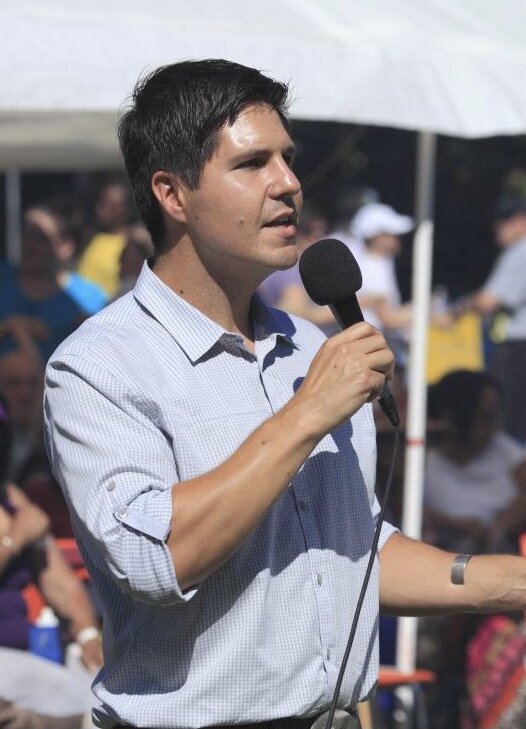
Health stories have different origins, motivations, paths. If we are lucky, being deliberate about our own physcial, mental and spiritial health will lead to one shared outcome: living longer, fuller lives. If that happens, the higher the likelihood we will help our communities and make big differences in the lives of others, too.
I’m in awe of the strength, devotion and energy of many of my friends + colleagues across the country. Pardon the Indian lawyer group hug here, but our legal professional community is rich in advocates with sharp minds and big hearts. I want these folks to stick around for as long as possible. So whether that’s supporting better food habits, or better exercise routines, or sobriety or mindfulness. I’m here for it. And I know many of you are too.
Gabe Galanda is one of those people that I want to see going strong for a whole lot longer. I don’t recall the precise moment I met him, but I’ve been a fan of his work and his commitment to justice for many years now. He has my ear. He has my support. And I’m thrilled that he favorably responded to my nudge to tell his important story.
As I read his words, I can vividly hear Gabe’s voice – a voice now better equipped to advocate for others, because he can more clearly hear the voice within himself.
“Next month I will celebrate nineteen years of sobriety. I don’t know my exact birthday but I got clean and sober in February of 2002.
On February 26, 2002, my Auntie Carol killed herself. I was the one who got the call from the sheriff who found her and I was the one who had to call my cousin Roy—my best friend and brother—and break the news.
The last time I got drunk was some time before February 26, 2002. After that day, I never partied again. I went cold turkey.
My Auntie Carol, like my mom and another auntie on my Indigenous side, all died due to a combination of alcoholism, prescription drug addiction, and mental illness. My dad and auntie on my Portuguese side suffered the same fate. Only my mom made it to her sixties.
An entire family generation did not live long enough to meet or enjoy my twin daughters. That weighs heavy.
I realized in February of 2002 that despite my law degree and a high-paying corporate law firm associate job, I was walking towards the same fate. I was bound to end up dead at a young age.
I started drinking and partying when I was 17 and continued doing so throughout college and law school and the first two years of my career. Alcohol allowed me to escape family trauma and dysfunction. But it was never a matter of a few beers or drinks. I always drank to excess and far more often than not I blacked out and could not remember how I got to sleep.
By 2002, the weekend hangovers were fierce. I would wake up Monday, put on a suit and tie, and grind all week. I billed 2,200 hours from the forty-first floor of a downtown Seattle skyscraper in 2001. But I was not of sound mind or heart.
I was overweight and lacked self-confidence. I was lonely, if not depressed. I was lethargic, physically and intellectually. Despite the big hours and other hallmarks of young lawyer success, I was a mediocre lawyer.
My life changed when I got clean and sober. Everything changed. I lost weight. I ate better, most notably by not eating drunk or hangover food. I gained more energy, especially on the weekends. Most of all, I thought much more clearly.
The legal lightbulb went on for me. It had not gone on in law school or as a summer associate or baby lawyer. It sparked when I got clean and sober.
My career and life took off.
Indigenous clients started to call, allowing me to do what I wanted to do since high school: help Indigenous peoples. Indigenous elected and cultural leaders gave me new purpose and taught me so much about what is truly means to be Indigenous.
I saved up my money—no longer wasting hundreds of dollars on the weekends—and bought a home. Neither of my parents owned a house and I never before really had a place to call home. Buying my own home brought tremendous fulfillment and security.
I met my wife and later became a dad. My own family brings reason and joy to my life. I realized who my real friends were and weren’t. I forged new, enduring personal and professional relationships, which help sustain me today, especially in low moments.
None of this happened overnight.
For the first several months of my sobriety, it was very difficult to socialize at after-work events or in other drinking environments. I didn’t feel funny or interesting. I would get tired before nights got late. I suddenly had a hard time relating to some of my friends. I would get bored on weekends. But gradually, everything got better. My life got clearer, with much less clutter.
At some point, sobriety became a matter of pride. The shame associated with decisions I made when I drank converted into pride that I was no longer drinking or fumbling. With every passing month or year of sobriety, I felt more pride. I feared how ashamed I would feel if ever drank again and flushed those months and years away and had to start all over again. That pride and fear motivates me to never again drink or party. That’s my self-determination.
My sobriety is no panacea—it’s no cure-all.
Maintaining physical well-being and mental health remains a daily challenge. The pain and trauma of my youth and young adulthood lingers. Some days are still very hard. But sobriety makes it much easier to cope, than alcohol or escapism ever allowed.
I thank Creator for my clean and sober life—for saving my life.”
Also in Health Stories
Here We Go Again . . .
Stacy Leeds (Cherokee Nation) | Age 52 | Downtown Phoenix + Tahlequah | Part Three ᏦᎢ Last month marked the third anniversary of this blog…
Pete Coser, Jr: Apeyvkes! (Let’s Go!)
Pete Coser, Jr. | Age: 42 | Jenks, OK (Muscogee (Creek) Nation Reservation)Muscogee, Choctaw, and Chickasaw Marathon Runner Pete’s dad is an educator and that…
Famous Last Words, Dean 2.0
Last week, most of you heard that I’ll be starting a new gig soon. In the latest episode of “the 20 year old Stacy never…
Thyroid + 12 Years of No (Real) Bread
Stacy Leeds (Cherokee Nation) | Age 50 | Tahlequah | Part Two ᏔᎵ | I launched IndigenousWell one year ago this month and laid out…
Robbie Vann: Being Change, Breaking Cycles
Robbie Vann (Cherokee Nation) | Age 34 | Tahlequah I met Robbie Vann when we both worked at the Cherokee Nation Gaming Commission several years…
